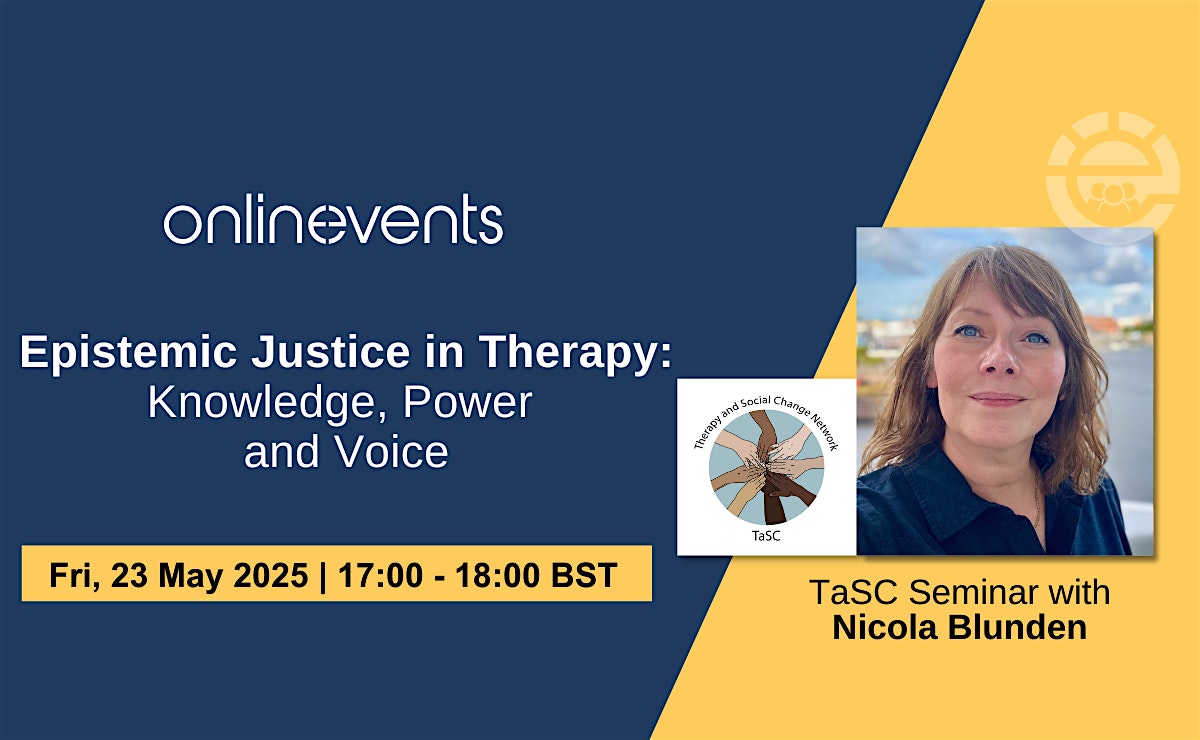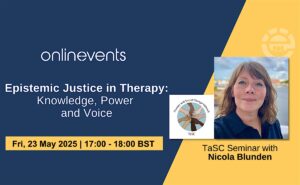About this event
This workshop explores the concept of epistemic justice in therapy—how knowledge, power, and voice influence therapeutic relationships, and vice versa. Nicola will describe the ways dominant narratives, implicit biases, coloniality, and institutional structures can create epistemic injustices, particularly for minoritised and marginalised clients. She will unpack how as therapists we can recognise and challenge these injustices by responding to clients as credible knowers of their own experiences, and by advocating for the validity of lived experience knowledge.
Through a combination of theoretical discussion and reflective exercises, attendees will learn how to integrate epistemic justice into their therapeutic practice, ensuring that clients’ voices are heard, respected, and centred in ways that align with ethical and anti-oppressive frameworks.
Learning Objective Participants Can Expect From This Event
- Understand and recognise epistemic injustice—differentiate between testimonial and hermeneutical injustice and their relevance to therapy.
- Challenge dominant narratives that silence or discredit clients’ lived experiences.
- Develop epistemically just practices, including active listening, co-construction of meaning, and transparency in therapeutic decision-making.
Who is This Workshop Appropriate For?
- Qualified and trainee therapists and allied health professionals.
How May This Workshop Impact Your Practice?
- This workshop will enable participants to deepen their knowledge and awareness of epistemic injustice, and view their anti-oppressive practice through the specific lens of epistemic justice.
ZOOM
This event will be hosted on the Zoom meeting platform where we will use our cameras and microphones to interact with each other as a group.
___________________________
All the colleagues at ONLINEVENTS and the presenters we collaborate with are committed to working in a manner consistent with the BACP Ethical Framework, which can be accessed on the link below. When registering for this event you are agreeing to be present and interact in a manner that is consistent with this Framework.
Nicola Blunden

Nicola is a counsellor, trainer, and supervisor, working in the South Wales valleys. She is author of Next Steps in Counselling; Psychotherapy Practice – a student’s companion (PCCS Books – due May 2025). With research expertise in co-production and decolonising knowledge, she is passionate about lived experience voices, especially for neuro-divergent people (including plural people). She is currently co-authoring a book on coproduction and ethics with Dr Mhairi Thurston.



